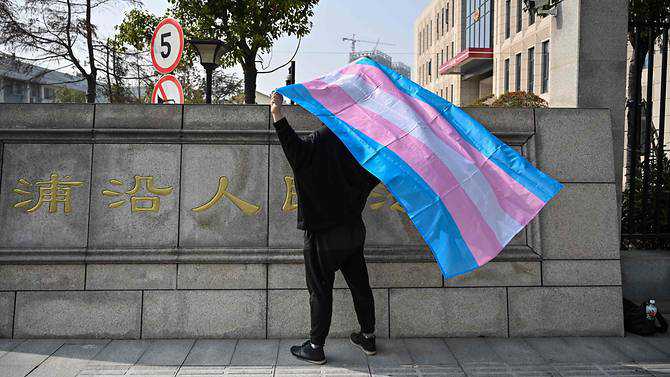Trans woman puts Chinese law to the test in landmark case
11 December, 2019

Earlier this year, shortly after completing gender-reassignment surgery, a Chinese transgender woman surnamed Yang was fired from her job.
The reason given for her dismissal was chronic tardiness, but Yang smelled a rat and sued her former employer in what LGBT activists are calling a landmark test of a transgender seeking redress through a new addition to Chinese law promoting equal employment rights.
Yang, who asked that her full name not be used to avoid prejudicing her case, had considered her media-company employer to be LGBT-friendly, but says transgenders still find acceptance to be elusive.
"A lot of times, people think an LGBT-friendly company or environment is ... actually being friendly to homosexuals or gay men, but not friendly to transgenders," said Yang, who is in her 30s and introduces herself as "Ms Ma."
Her case was heard last week in the eastern city of Hangzhou, with Yang seeking a public apology and modest compensation under a 2018 provision added to the law by China's Supreme People's Court governing "equal employment rights disputes".
"A lot of (people with) traditional ideas still think transgenders are either performers or prostitutes," said Yang.
"The law will just be a dead law if nobody uses it."
Activists call it the country's first transgender equal-employment rights suit and the case has generated significant national interest, with some major Chinese media outlets picking up the story, and postings about the case drawing more than 140 million views on China's Twitter-like Weibo platform.
Around a dozen activists and other supporters watched in the Hangzhou courtroom - some of them laughing quietly when her former employer mangled the term "LGBT" - as both sides stated their cases before the hearing was adjourned.
A verdict is expected in coming months.
"IT IS TIME"
The exact size of China's transgender population is unknown, but an estimated 0.6 per cent of Americans identify as trans, a percentage that in China would equal more than eight million people.
They have long faced societal pressure to deny their identities in a country where homosexuality was officially labelled a "mental illness" until 2001.
A survey by the non-profit Beijing LGBT Center in 2017 found that trans unemployment is three times the national average.
But Chinese transgenders have been quietly asserting themselves in recent years, with advocacy groups forming and doctors reporting increasing gender-reassignment surgeries.
Xu Bin, head of Common Language, a Beijing-based NGO advocating for equal rights for sexual minorities, said trans people were being encouraged by an increasingly open LGBT dialogue in China and successful recent attempts to use the law.
Those include a Beijing court in 2014 ordering a psychological clinic to compensate a gay man for being administered electric shocks in an attempt "cure" his homosexuality, and a transgender man in southwestern China who in 2017 successfully sued a former employer for wrongful termination.
"In the past five years, there have been (LGBT) individuals constantly standing up and using law as a weapon to advocate for equal rights," Xu said.
Many Chinese trans tell nightmarish stories of physical and emotional abuse by relatives or co-workers, but not Yang. Her family has been supportive of her transition.
Still, she endured the same years-long confusion and soul-searching faced by millions.
"I'm not saying I have not suffered or cried. But after the surgery, I'm still me. I still have the demands of work and life, and I hope to contribute to the development of the country. But not many people can see that aspect of us," Yang said.
With information and affordable medical services increasingly available, Yang, sporting alternating blue-and-red nail polish, said "it was time" for her to undergo surgery, which she did overseas.
As for public recognition and understanding of transgenders, "any time is the right time," she said, adding the legal landscape is becoming more favourable.
"(The situation for Chinese trans) is not static, pedantic, rigid. It has been actually progressing slowly," she said.
Source:
TAG(s):
